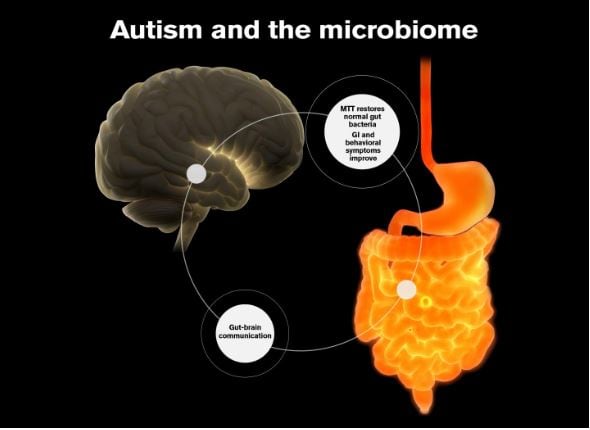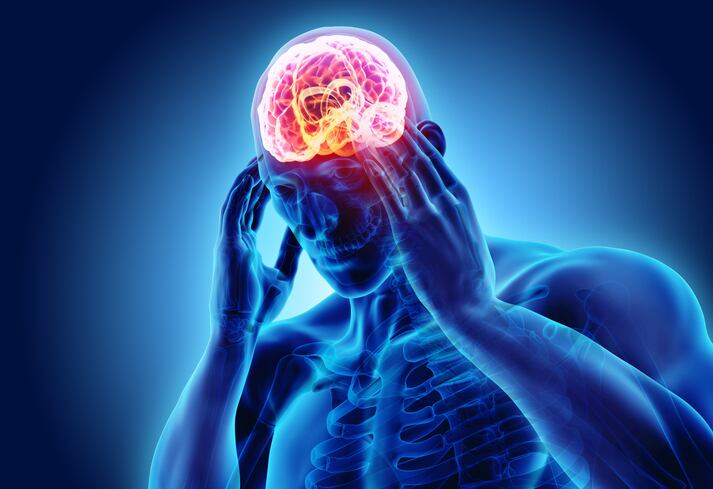Writing in the American Journal of Gastroenterology, scientists find the strain B longum 1714 “influences resting neural activities associated with enhanced vitality and stress-related neural responses”.
The team from Germany, Italy and Ireland believe the results support the probiotic’s role in affecting brain function via management of brain activity in certain regions.
“As researchers in the placebo effect, we have been sceptical about many of the claims made about probiotics and the gut-brain axis,” said Dr Paul Enck, study leader and head of research at the Department of Psychosomatic Medicine and Psychotherapy, University Hospital, Tubingen, Germany.
“We think the results are novel and innovative and provide a scientific basis to assess the true impact of specific bacterial strains on the brain.”
Zenflore brand
The translation of promising preclinical signals into human subjects with probiotic strains has proven challenging.
Much research emphasises the mechanisms of action that drive the interaction between the gut microbiota and brain function in humans.
B.longum 1714 is a probiotic strain commercialised by Alimentary Health Group (AHG) subsidiary, PrecisionBiotics as a food supplement brand Zenflore.
The strain has previously shown an ability to reduce stress-related behaviours in preclinical studies and improve stress responses and cognitive function in healthy volunteers.
However, B. longum 1714’s role in modulating brain function in humans is unclear. Clinical studies with probiotics using neuroimaging methods provide insight into its role in CNS function in healthy volunteers and in patients with irritable bowel syndrome (IBS).
Study details
Led by Dr Enck, the team instructed 40 healthy people to consume either PrecisionBiotics’ B. longum 1714 strain or a placebo daily for four weeks (double-blind design) at a dose of 1x109 colony forming units (CFU) per day.
Participants were exposed to a social stressor before and after the four-week period. This stressor was created using a ‘Cyberball game’, a standardised social stress test.
Before both 1714 strain intake and afterwards, the brain activity of subjects was measured with magnetoencephalography (MEG) during the game.
Prior to the introduction of stress, the 1714 strain appeared to alter brain activity and was associated with increased vitality and reduced mental fatigue.
The team thought this indicated improved adaptation or preparation (coping) for stressful situations and counter regulation of negative emotions.
During the stress-inducing activity, the 1714 strain appeared to change the central processing of stress stimuli.
“We are delighted with these ground-breaking results, which show the potential for targeted strains based on considered science,” said Dr Barry Kiely, CEO of Alimentary Health Group.
“This research builds on earlier studies with our partners at APC Microbiome Ireland in University College Cork, who showed the 1714 strain reduces stress output and stress responses in healthy subjects when exposed to an acute stressor.”
Potential mechanisms involved
The study pointed out that a clinical effect of B.Longum 1714 on reducing stress was not observed as the study was not powered to detect differences in subjective stress.
The team added that B.Longum 1714’s effects seen in individuals’ neurophysiology was a novel finding and was previously reported for behavioural data in animals and humans.
“Other studies in line with our data, showed neural modulation by different psychobiotic strains and provided some clues of the potential mechanisms involved,” the study concluded.
“Preclinical studies have reported an increase in serotonin and dopamine level, 2 crucial neurotransmitters regulating mood and emotions in brain regions of mice after interventions with Lactobacillus plantaraum and Lactobacillus helveticus.”
Source: American Journal of Gastroenterology
Published online: doi.org/10.14309/ajg.0000000000000203
“Bifidobacterium /Longum 1714 Strain Modulates Brain Activity of Healthy Volunteers During Social Stress.”
Authors: Huiying Wang et al.




